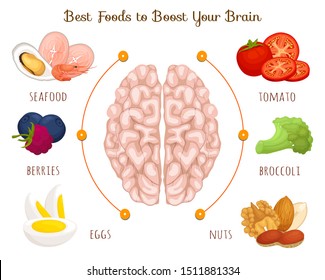

In addition to a healthy diet, exercise helps to keep our brains sharp. It is also rich in polyphenols that can protect the brain from mental decline. Catechins in green tea are thought to be the reason why tea supports memory function. Green tea boosts brain function by improving alertness, memory, and focus. Caffeine acts as a psychostimulant as it speeds up information processing. Tea and coffee contain caffeine which offers short-term concentration boosts, as well as help in solidifying new memories. Dark chocolate can help improve memory, alertness, and clarity by increasing blood flow to the brain. Being deficient in any of these nutrients can cause a decline in brain function.ĭark chocolate has antioxidant properties to combat cognitive decline, as well as the natural stimulant of caffeine to enhance focus.

They supply this valuable mineral, which is vital for enhancing memory and thinking skills. Pumpkin seeds are packed with brain-boosting nutrients like unsaturated fatty acids, antioxidants, zinc, copper, and iron. Apigenin in parsley, thyme, oregano, and basil, can protect the brain from inflammation, oxidation, and plaque formation and make your food tastier. Turmeric reduces inflammation and increases blood flow to the brain.

Green leafy vegetables, such as spinach, kale, arugula, and collard greens, are also jam-packed with antioxidants, iron, beta carotene, and minerals that improve concentration and slow cognitive decline.Ĭertain herbs and spices can help you stay sharp. A new body of research suggests that eating grapes and blueberries together may result in a dramatic decline in memory loss and aging. They improve cognitive function and significantly slow brain aging. They protect the brain against oxidative stress and contain memory-boosting agents like anthocyanin and flavonoids to enhance spatial memory and learning. Plus, they may play a vital role in enhancing memory, especially as we get older.īlueberries are powerful little antioxidants. A diet with higher levels of them has been linked to lower dementia and stroke risks, and slower mental decline. These healthy fats have amazing brain power. What makes oily fish so good is that they contain these active fats in a ready-made form, which means the body can use it easily. Oily fish, like salmon, tuna, herring, mackerel, sardines, and trout, are a great protein source and rich in omega-3 fatty acids, which are linked to boosting brain health. When the body breaks these down, they produce isothiocyanates which may reduce oxidative stress and lower the risk of neurodegenerative diseases. Broccoli is rich in compounds called glucosinolates. Some studies have linked vitamin K intake to better memory skills. So whether you are studying for an exam or playing a game of Scrabble, these foods will certainly give you the mental edge.īroccoli is packed with antioxidants and vitamin K. It doesn’t matter what your age is, eating certain foods can boost your memory and sharpen your focus.” Growing up, my grandmother always told my sister and I that, “you are what you eat! If you want to be smart, you must eat foods that are packed with vitamins, minerals, antioxidants, and don’t forget the good fats.”Īgnes Virga, MD, Emerson Hospital’s chief of neurology, agrees that my grandmother was right! She says, “science tells us that some foods increase awareness and mental sharpness, while other foods tend to make us sluggish and may even give us brain fog.


 0 kommentar(er)
0 kommentar(er)
